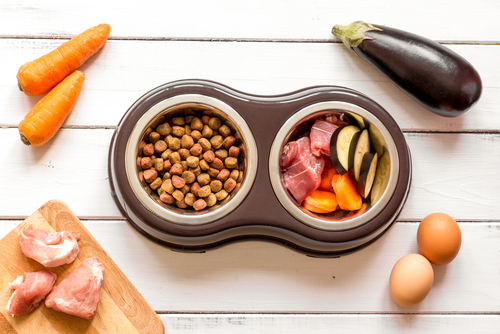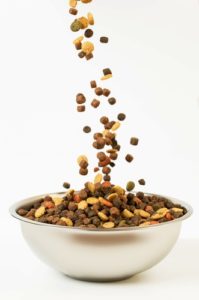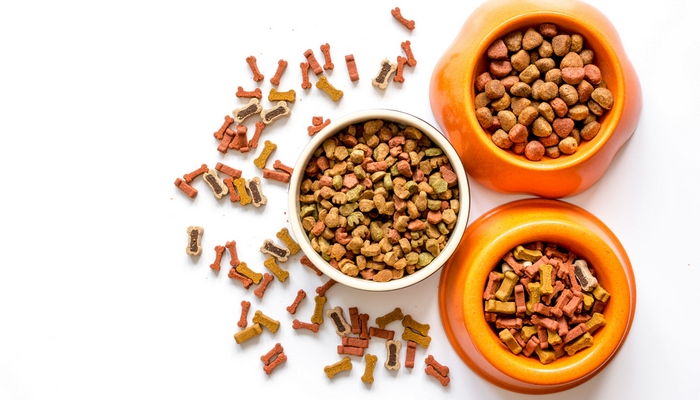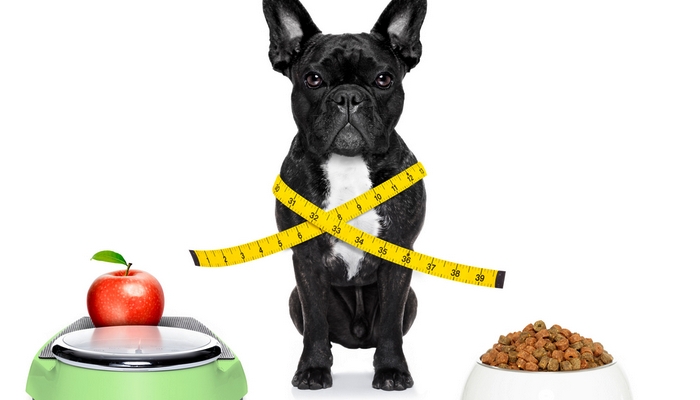Shopping for dog food can be a bit of a challenge, especially if you are looking to change your pet’s current diet, you have a new puppy or if you recently adopted an adult dog. Before you get lost in the dog food aisles of your local pet store, take a look at our guide to selecting the right, good dog food for your dog and how to do it properly.
Vets and canine nutritionist are usually the best place to start when searching for the best dog food for your Fido. There are several vet recommended dog food brands that may be better than others, but there's more to choose from than just those.
If you want to do your own research, there are several questions that need to be answered before you can you even begin to shop for good dog food. These questions include:
- How old is your dog?
- Does he have any health problems?
- What is your dog’s lifestyle like? Is he active or sedentary?
- Are you interested in organic, holistic or raw diets?
- Does your dog have any preferences or “picky eating” habits?
We're going to break down these questions and discuss why each is important. If you have any further questions about the most appropriate diet for your dog, it's best to seek the help of your veterinarian or a canine nutritionist. This is especially important if your Fido has any health conditions that can be helped by specific dietary changes.
RELATED: 31 Dog Food and Feeding Myths You Need To Stop Believing
How to Know Which Dog Food is Right for Your Dog
How old is your dog?
Life-stage appropriate diets will ensure that your dog is getting the right nutrients and the right amount of calories for his age. Sara Ann Taylor, a pet food expert, has done a good job explaining how the dog's age and other factors matter in your choice.
Puppies need more fat and energy in their diet than senior pets, and their requirements for important minerals like calcium is increased due to their rapid growth.
Beware of “all life stages” foods – these are not recommended by veterinarians for puppies.
READ: Vet’s Tips on How to Advise on the Best Dog Diet
Does your dog have any health problems?
Certain minor health problems can be improved with over-the-counter diets. More chronic or severe issues may require a prescription diet from your veterinarian. A few conditions that may be helped by a particular diet include:
- Dry skin
- Arthritis
- Sensitive stomach
- Dental care
- Lactation support
- Renal disease
- Liver disease
- Obesity
For example, dogs with dental disease are more likely to have trouble chewing and swallowing hard, dry kibble. A soft, canned diet may be best for these pets.
Over half of the canine population is overweight or obese, and most of this epidemic is caused by heavy-handed feeding and poor portion control by doting parents. When your veterinarian says it is time to cut back on the food, it may be best to establish good portion control paired with a “weight control” diet that contains lower fat and high fiber.
RECOMMENDED: How to Feed Dogs with Renal Disease and Kidney Problems
Your dog’s lifestyle
Sometimes dogs will have a similar lifestyle to their parents, but that’s not always the case. Overweight and obese dogs also tend to have more sedentary lifestyles and may require lower-calorie and higher-fiber options for weight loss.
There are many “diet” dog foods out on the market for you to choose from, but it's best to talk with your vet before switching to one of these foods.
High-energy breeds such as Australian Shepherds, Border Collies and Jack Russell terriers may need a higher-calorie food than other dogs that are more sedentary.
Sport and athletic dogs, and hunting breeds also require more calorie-dense foods or larger portions when they are working.
Organic, holistic and raw diets for dogs
 Do you spend your weekends seeking out the best organic ingredients for your own meals? Your dog can also go organic with the convenience of commercially available dry kibble and canned formulas.
Do you spend your weekends seeking out the best organic ingredients for your own meals? Your dog can also go organic with the convenience of commercially available dry kibble and canned formulas.
A myriad of brands are available, just be sure to look for the ‘USDA Organic’ seal.
If you tend to follow a whole-foods diet or lifestyle, organic or not, your dog can reap the benefits of this as well. Skipping the kibble doesn’t even require you to cook for your dog at home. Freshly prepared dog foods that resemble casseroles are available in refrigerated cases at many pet stores.
Larger cities like Los Angeles are also home to small dog food companies that will prepare and deliver your pup’s meals fresh to your doorstep. When selecting a fresh-cooked diet, be sure to ask about the balanced recipe. Also ask if the recipe was formulated by a reputable veterinary nutritionist or holistic veterinarian.
Raw diets are controversial among veterinarians and veterinary nutritionists. However, some dog owners swear by their health benefits and are passionate about their dog going raw. It is difficult to find commercially-available raw diets through “big box” chain pet stores due to food safety and liability issues.
It is best to seek out frozen commercial raw diets that meet AAFCO (American Association of Feed Control Officials) standards at small, boutique pet stores. Online raw food companies will also ship meals on dry ice to your doorstep.
If your pet suffers from any health problem, discuss going raw with your veterinarian before making the switch. Bacterial contamination of raw meats can also be a health hazard in homes with immunocompromised individuals and young children.
MORE: Ask A Vet – Does Hypoallergenic Dog Food Really Work and Why?
Dog's a Picky Eater? Do Not Fear
Many owners find that they have to play “musical bags” when it comes to pleasing their pup’s picky palate.
If your dog is more prone to eat off of your plate than out of his own food bowl, a switch to a fresh, prepared commercially available diet from the refrigerated case may be the best solution. Cut out the people food slowly, and try the moist “real food” that is balanced for his nutritional needs.
Small and toy breed dogs may be picky about their dry kibble because the kibble is too big for their mouth. Seek out brands that have a “small bites” dry formula for adult and mature dogs. Some brands also have “breed-specific” diets that address both shape and size of the kibble, such as small sizes for breeds like Yorkshire Terriers.
Dog Food Marketing
 Dog food companies want to make nutritious food for your pet, but they also want to make money so there are a lot of controversy surrounding the pet food industry.
Dog food companies want to make nutritious food for your pet, but they also want to make money so there are a lot of controversy surrounding the pet food industry.
This involves clever marketing that will make their dog food more appealing to you (the one with the wallet) and not necessarily your dog.
Terms such as “holistic”, “human-grade ingredients” and “all natural” sound great, but are not regulated. It may be truthful or it could just be a marketing ploy.
Grain-free diets appear to be a current fad in dog food marketing. Some dogs are truly sensitive to certain grains (but not all grains), and these pets are often placed on a hypoallergenic prescription diet in order to control their medical condition.
Decades of research have shown that most dogs can readily digest grains, and it is an economical source of carbohydrates and fiber for your pooch. Certain dog food brands encourage the notion that dogs are obligate carnivores (like cats) and don’t need grains or sources of carbohydrates.
On the contrary, dogs are omnivores and benefit from eating a variety of carbohydrate sources like grains (rice, quinoa, oats, wheat, corn, etc.) fruits (blueberries, cranberries, apples, etc.) and veggies (peas, carrots, sweet potato, etc.)
However, some dog parents who switch their pet to grain free diets do see changes in their bowel movements (sometimes for the better, sometimes not) and improvements in their overall health. If you are considering going grain-free, select a trusted brand and discuss the change with your veterinarian.
WATCH NEXT: How to Read Dog Food Labels Accuratley
















